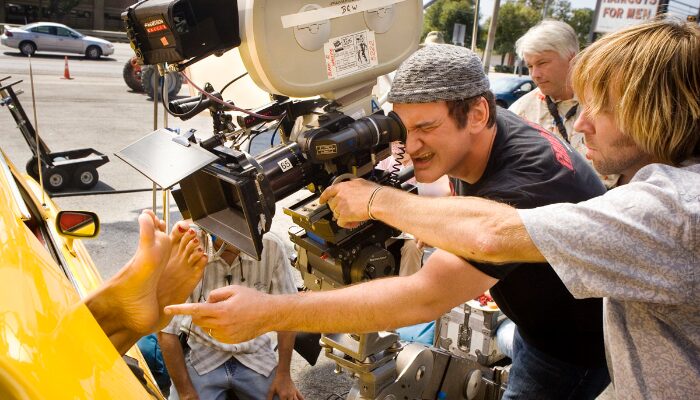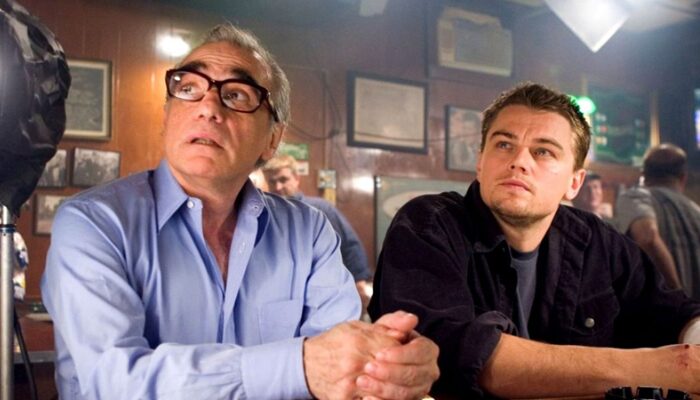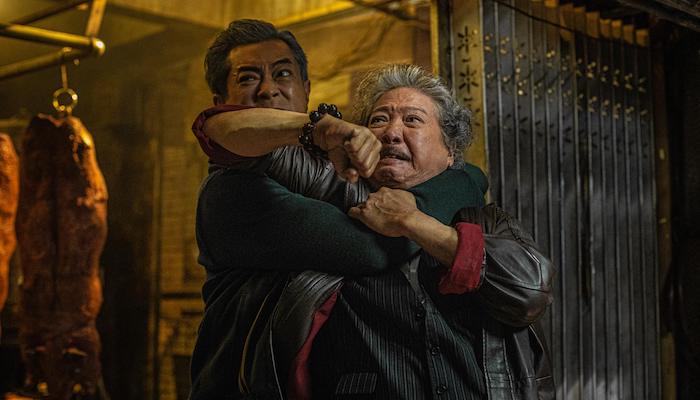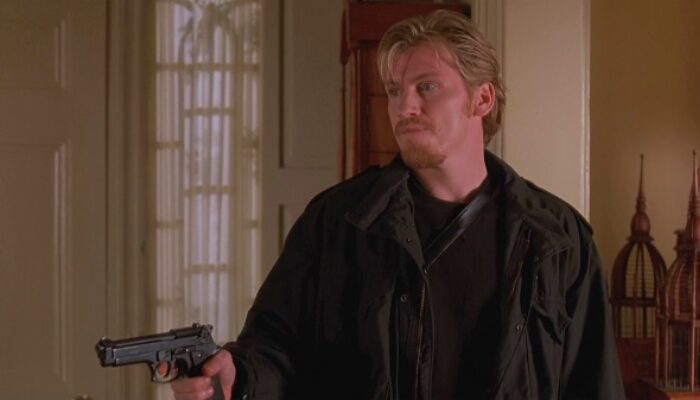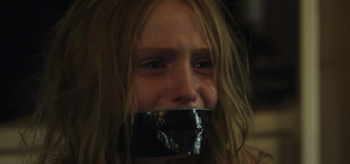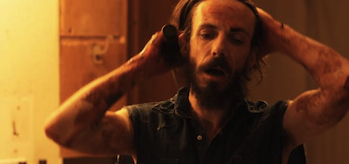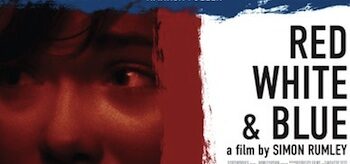Film Review: RED WHITE & BLUE (2010): Simon Rumley
Red White & Blue (2010) Film Review, a movie directed by Simon Rumley and starring Amanda Fuller, Noah Taylor, Marc Senter, Lauren Schneider, and Jon Michael Davis.
Most crime dramas culminate in singular, grand event whose architecture has been led out and led up to throughout the former two acts of the film. Red White & Blue is no different expect it isn’t one big, finale act that occurs in the film but small, no less significant micro-incidents instead. The old Aristotle adage: “The whole is greater than the sum of its parts” is not true of this film or its finale.
Red White & Blue’s highest, most dark point comes after one of the main protagonists, Erica (Amanda Fuller), is abducted. The second main protagonist, Nate (Noah Taylor), soon realizes that an abduction has taken place and initiates a streak of search, “enhanced interrogation”, and revenge even more vile and heinous than Louis de Pointe du Lac committed after Claudia was kidnapped and burned alive in Neil Jordan’s Interview with the Vampire: The Vampire Chronicles. There are subtleties to Nate, things hinted at, through the earlier acts of Red White & Blue that are brought to bear during this section of the film’s third act
The first such sequence is the most audacious and profound. This scene is audacious because of who the main recipient of the torture is. It’s absolutely the last person the viewer would expect. It’s the person threatened with physical harm in countless films who eventually has absolutely nothing done to them. e.g. the ice pop scene in Jonathan Hensleigh’s The Punisher. Because of this common dramatic ploy, the viewer may be shocked when it actually does happen.
The scene is profound because the interrogator never threatens physical harm to anyone. Once the interviewees are secured, the interrogator asks one of them a clear, simple question. What the interrogator does when he is given an answer that in anyway deviates from the question is shift, brutal, and unexpected. The viewer finds out why certain people want to employ the interrogator, a minor piece of plotting that might have been disposable if it weren’t for this sturdy bolstering. This isn’t your everyday, Hollywood question and answer session with moral, politically correct boundaries. This is raw, real. The scene ends with a devastating question to one of the interviewees, one filled with remarkable compassion considering what has just transpired and what is about to.
The scenes that follow are more of the same but with an increasing level of sadism and grotesqueries, as the hints about Nate’s mental cohesion become blatant facts.
Functionally, Nate is similar to Krug from Dennis Iliadis’ The Last House on the Left remake except with Nate there is something going on upstairs whereas with Krug, his actions are just reactions to tangible stimuli. Nate, on the other hand, has an end game in mind.
When Nate talks about his small piece of the Macdonald triad, the viewer sees how at home he is with who and what he is and his childhood. At all times Nate is under control, no urge or impulse out of his reign unlike the monsters on Law and Order: Special Victims Unit.
Erica is the complete opposite. She is almost all compulsion, compulsion that she cannot control, and her compulsion, like Nate’s, saw its nucleus when she was very young. Like Nate she has complete recognition of her “issue” but unlike Nate, she is a slave to it.
Possibly sensing a kindred spirit of sorts, the mostly off-screen courtship between the two of them is a fault of the film but it is also a strength in its last moments. When Erica attempts to change, her tears can be interpreted as sorrow for what she can’t be, can’t have, and may not be able to feel. She may be on the cusp of change but does she have the will and fortitude to go through with it? Ryan Bingham found himself in the exact same situation at the end of Jason Reitman’s Up in the Air.
The actions of the interrogator and the rock band members in the last act of Red White & Blue are born out of the same primordial pool: emotional closeness. Like most things people do out of such closeness or a sense of fraternal obligation (i.e. a friend in need is a friend indeed), their immediate well-being usually comes last. This is the path Franki (Marc Senter)’s friends chose: legally insane actions and easily understandable ones, making their result that much more tragic.
As the packages each friend is holding are revealed one by one, the viewer realizes these people are truly Franki’s friends for only they could store, mentally and physically, what they do for him.
It is this section of the film that makes the movie worth seeing if the viewer is a hardcore horror fan (Seven, I Saw the Devil, etc.). If the viewer is a peripheral horror movie fan i.e. the remakes of Friday the 13th and A Nightmare on Elm Street are their cup of tea, avoid Red White & Blue.
The last “package”, like those from HBO’s Oz (or so I’ve heard), is a difficult sight to witness. When it’s held then rested on a kitchen counter, the last drops of apathy towards the interviewees final seep completely down the coroner’s stainless steel slab drain.
The ending to the film is somber, touching and surprising. Things are revealed that weren’t evident anywhere else in the film.
The individual parts of Simon Rumley’s Red White & Blue, especially those found in its third act, are far better than the film as a whole. Rumley is not pusillanimous when it comes to on-screen violence, but he isn’t flagrant with it like a drunken painter flicking and flacking his damp brush around a white-walled room. He only shows what the viewer needs to see and then implies the rest. His implications speak far more for themselves and their victims than tardy torture horror would.
Rating: 7.5/10
Related Articles
FilmBook's Newsletter
Subscribe to FilmBook’s Daily Newsletter for the latest news!


